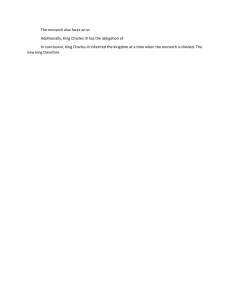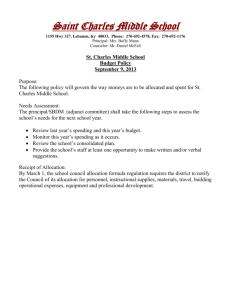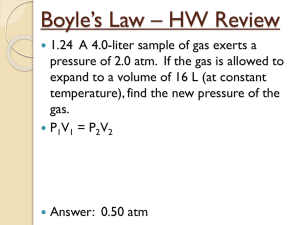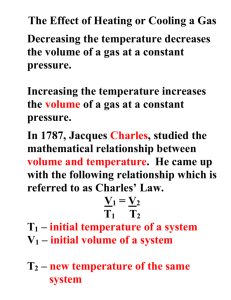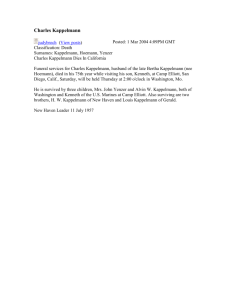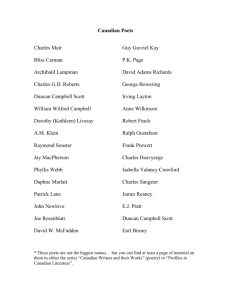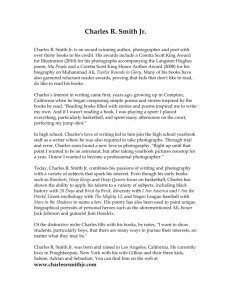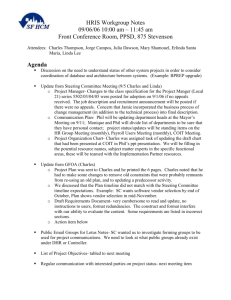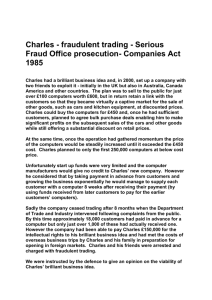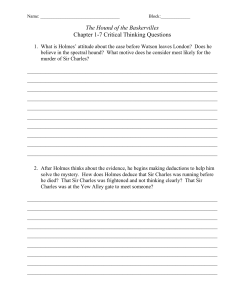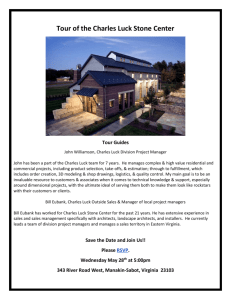Charles I and Early Modern Kingship 1625
advertisement
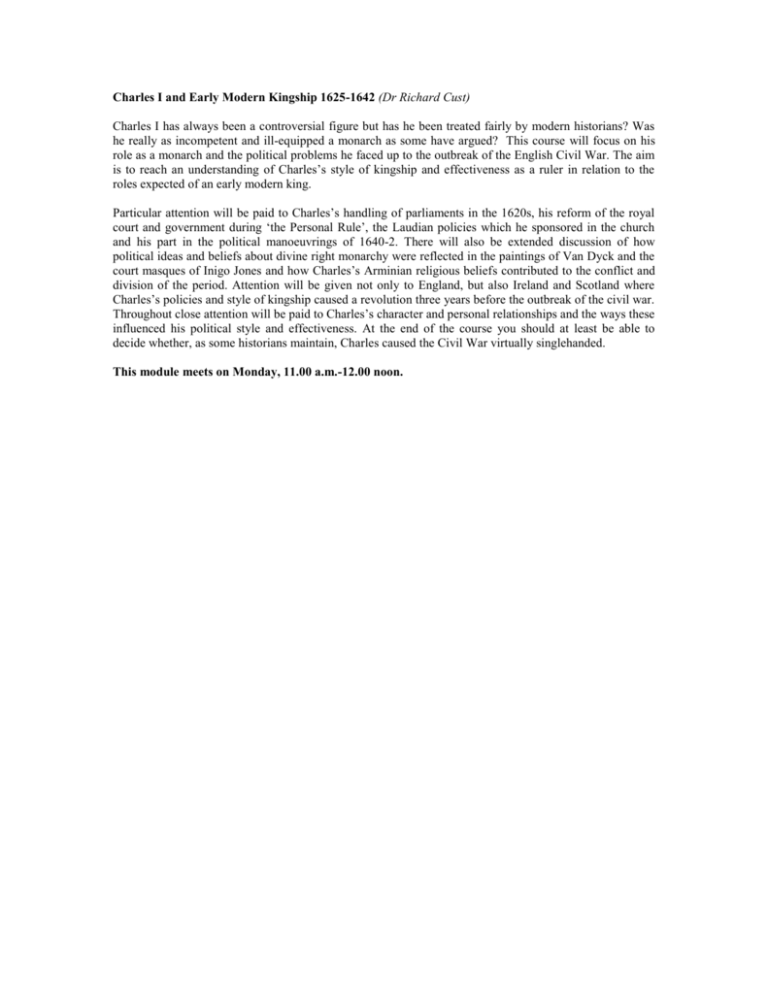
Charles I and Early Modern Kingship 1625-1642 (Dr Richard Cust) Charles I has always been a controversial figure but has he been treated fairly by modern historians? Was he really as incompetent and ill-equipped a monarch as some have argued? This course will focus on his role as a monarch and the political problems he faced up to the outbreak of the English Civil War. The aim is to reach an understanding of Charles’s style of kingship and effectiveness as a ruler in relation to the roles expected of an early modern king. Particular attention will be paid to Charles’s handling of parliaments in the 1620s, his reform of the royal court and government during ‘the Personal Rule’, the Laudian policies which he sponsored in the church and his part in the political manoeuvrings of 1640-2. There will also be extended discussion of how political ideas and beliefs about divine right monarchy were reflected in the paintings of Van Dyck and the court masques of Inigo Jones and how Charles’s Arminian religious beliefs contributed to the conflict and division of the period. Attention will be given not only to England, but also Ireland and Scotland where Charles’s policies and style of kingship caused a revolution three years before the outbreak of the civil war. Throughout close attention will be paid to Charles’s character and personal relationships and the ways these influenced his political style and effectiveness. At the end of the course you should at least be able to decide whether, as some historians maintain, Charles caused the Civil War virtually singlehanded. This module meets on Monday, 11.00 a.m.-12.00 noon.
